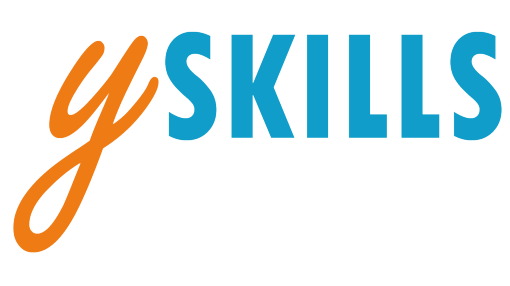As professor of digital inequality and director of the centre for digital inclusion, Alexander van Deursen is interested in the role of technology in the processes of human communication and in ensuring that technology development is at the service of people. He is especially known for evaluating the contribution of technological developments within debates on inclusive societies. In a scientific manner, Alexander maps barriers of technology engagement – for example using his widely acknowledged framework of digital skills – and explains differences in the positive and negative outcomes that people receive from engagement with (emerging) Internet technology. He is interested in how different people appropriate technology into daily life, and under what conditions technology actually can be used to improve wellbeing.
Alexander has published widely in sciencific journals that critically discuss key issues arising from the scale and speed of technology development. His publications on digital skills and digital inequality have won awards as best dissertation worldwide on technology and communication from the International Communication Association, best dissertation in communication science in the Benelux from the Netherlands School of Communication Research, best paper award from the International Communication Association, and the UT in the Media award from the University of Twente.
Alexander has advised the Dutch government, European Commission, International Telecommunications Union, UNESCO, UNICEF and other national and international organizations on the social implications of the Internet, specifically on how to account for the contribution of technology to increasing social inequalities. He has been visiting professor at the Londen School of Economics and Political Science (LsE) and Arizona State University (ASU). He is on the scientific Board of Netwerk Mediawijzer and initiated the rapidly expanding DISTO project (from digital skills to tangible outcomes project) with professor Ellen Helsper (LsE). In addition to his academic work, he has been featured in numerous popular media outlets including all major national newspapers, international newspapers such as the New York Times, and many other outlets.
Currently, Alexander is leading several (inter)national research projects. He wrote a book with professor Jan van DIjk called 'Digital skills, unlocking the information society'. Alexander chairs the department of Technology, Human and Institutional Behaviour. His work and projects are avaiable here: www.centrefordigitalinclusion.nl.
Expertise
Computer Science
- Internet
- Internet of Things
- Performance Test
- Survey
Social Sciences
- Skills
- Dutch
Psychology
- Research
- Communication
Organisations
Ancillary activities
- Alliantie Digitaal SamenlevenAdviesraad Alliantie Digitaal Samenleven
Research line 1: Digital inequality
In the first line of research, Alexander focuses on the use and effects of (emerging) Internet technology in relation to a person’s position in society. He showed that some sections of the population more frequently use applications that have the greatest advantages for accruing capital and resources (such as work, study and societal participation), while other sections relatively often choose to use entertainment applications that have little advantage. Besides increasing relative differences, there is the disturbing trend of absolute exclusion; when offline alternatives become unavailable. By building on traditional classifications of potential areas of exclusion in his theorization, Alexander tries to understand who benefits in what way from technology. To further enrich quantitative work, he focuses on specific types of technology usage that affect offline outcomes across several areas of society.
During his stay at London School of Economics and Political Science (LsE), Alexander worked on the 'From digital skills to tangible outcomes’ (DISTO) project. With scholars from LsE and Oxford University he created a theory driven index for digital exclusion. The index follows the process of technology appropriation by accounting for motivation and attitudes, physical and material access, skills, uses and outcomes. Besides the ongoing DISTO project, Alexander is working on a granted projects that studies the interrelationship between social and digital inequality by following technology use in the household context for the course of a year. Furthermore, he received a grant from NWO to study inequality in the Internet of Things. The focus is on performance tests of IoT skills and IoT use in the social context of the home.
Research Line 2: Digital skills to participate in the information and network society.
Digital skills play an important role in the translation of a type of use (e.g., search for a job) in the corresponding outcome (employment). Performance tests based on Alexander's framework of six types of skills (operational, formal, information, communication, content creation and strategic) revealed that assumptions about the level of digital skills among citizens are unjustified. Alexander has for example shown that older users outperform young users in content-related digital skills, and that we should not underestimate the importance of traditional skills for performing on digital skills. With phd's and graduate students Alexander is conducting performance tests of Internet and IoT skills that are required for new – supposedly more intuitive – devices. From a practical perspective, much of the interest in this research line comes from the public domain, for example in relation to the objectives regarding the digital government. Digital skills are considered an important requisite to achieve this objective.
Research Line 3: Digital skills for 21st century labor
The third line of research is an extension of the previous one and concerns the skills needed in the context of employment. In political and economic discussions about what knowledge and skills are important in our current and future society, these skills are referred to as ‘21st century skills.’ Examples are information management, communication, collaboration, problem solving, or critical thinking, skills that are also needed in the digital environment. In this line of research, Alexander responds to challenges such as the increasing demand for high skilled jobs, or the mismatch between what students learn at school and what the labor market requires. In 2012 and 2013, Alexander conducted vignette studies and interviews that revealed that much time is lost in the workplace because of digital skill shortages, that organizations take few initiatives to support the worker, and that the effects of training are underestimated. He is now leading a research project which aims to identify digital skills for workers in the creative sector and to determine the level of these skills and the interplaying factors influencing this level. The results help to establish policy that will be applied in the last phase of the project.
Publications
Jump to: 2026 | 2025 | 2024 | 2023
2026
2025
2024
2023
Research profiles
Because of his prominent role in large research projects, Alexander is limited active in bachelor courses. Four years ago he initiated the development of the master course ‘Social implications of the Internet’ with a focus on societal aspects in which the Internet (of Things and other emerging technologies) plays an important role, ranging from economic growth and 21st-century labor, democracy and policy making, health, cybercrime, cultural consumption, and social mobilization. Instead of common utopian and dystopian views supported by shallow arguments, Alexander encourages students to identify the most promising results with evidence. Besides overviewing key insights, students develop a thorough understanding of the main perspectives about the social implications of the Internet.
Alexander furthermore participates in post academic Master courses, for example by providing modules on digital inequality and digital skills in organizational contexts. He regularly is asked to provide workshops on digital skills and inequality.
Affiliated study programs
Courses academic year 2025/2026
Courses in the current academic year are added at the moment they are finalised in the Osiris system. Therefore it is possible that the list is not yet complete for the whole academic year.
Courses academic year 2024/2025
- 194100040 - Master Thesis BA
- 201500101 - Master Thesis Research Proposal
- 201500102 - Master Thesis Research Project
- 201800100 - Master Thesis Communication Science
- 202000576 - Research Proposal Bachelor Thesis IBA
- 202000579 - Bachelor Thesis IBA
- 202400101 - Bachelor Thesis IBA
- 202400106 - Bachelor Thesis IBA, DD with Múnster
Current projects

21st Century Digital Skills (NWO/NRO grant)
The main goal of the Human Capital Agenda is to make the Dutch creative sector an international leader by strengthening human capital among the Dutch workforce. In this regard, human capital can be considered an umbrella term covering digital literacy, creativity, critical thinking, problem solving, communicating and collaborating. Together, they create a strong base for innovative and competitive power. The goal of this project is to contribute by focusing specifically on 21st century digital skills of which the importance is fundamental to the wider human capital challenge.

Youth Skills (acronym: ySKILLS)
Digitisation is changing society. ICTs strongly impact children's and adolescents' wellbeing. In order to benefit from these, new skill sets are required. Youth Skills (acronym: ySKILLS) aims to enhance and maximise long-term positive impact of the digital environment.

Digital inequality from a domestication perspective (Tech4People grant)
Research in the field of digital inequality has proliferated over the last decade and demonstrates the complexity of factors that influence how people use the Internet. Many of these factors have filtered through in recent policies (that for example aim at improving Internet skills) with as primary goal narrowing social exclusion in relation to everyday challenges. Research is mostly quantitative and attempts to describe the large picture of the problem. The mechanisms that explain how online inequalities (e.g., motivational, physical, skills or usage) effect one’s offline position (and the other way around) are yet to be explained in qualitative research. A better understanding and theoretical development is necessary for creating policies aimed at those who are socially excluded. Policies can be better targeted when the effects of providing technology and training on social exclusion are better understood. The overall research question is: How do digital and social inclusion indicators interact and mediate the effects of technology on daily life in low ses-family settings.

Any Thing for Anyone? (NWO VIDI grant)
The role of technology is rarely mentioned in political discussions about social inequality. Nevertheless, recent studies have revealed that technologies offer more capital-enhancing opportunities for those of higher socioeconomic status. Furthermore, when technologies become more complex, comparative advantages increase, enabling smaller groups of people to benefit. Following this reasoning, it is crucial to study the most recent phase of technological development: the complex Internet-of-Things (IoT). Many of the possibilities enabled by IoT that are emphasized in popular media seem techno-utopian promises that stress the autonomous power of the technology. So far, behavioral factors that are necessary for understanding the impact of the IoT have been ignored. We aim at understanduing more about the key driver for using the IoT: user skills and combine performance tests with socio-contxtual investigations of IoT use.

From Digital Skills to Tangible Outcomes (DIS2O)
In the UK and Europe where this project originated policies have been developed to improve individuals' Internet access and skills to ensure they can fully participate in all aspects of the information society. Other regions show similar initiatives aimed at tackling inequalities in people’s abilities to use Information and Communication Technologies (ICTs) in ways that help achieve tangible, high-quality outcomes in everyday life. At the same time, a great deal of academic work has been conducted which has led to detailed knowledge about who is and who is not digitally included.As the Internet becomes an increasingly embedded part of everyday life for many people, research on digital inclusion has been criticized. There are concerns about the lack of strong theoretical developments within the field and the limitations of the survey measures typically used in research and evaluations of initiatives. In this project, we aim to address these criticisms through developing theoretically informed survey measures of people's digital skills, engagement with the Internet, and the tangible outcomes this Internet use has in their lives. In parallel to the development of #DiSTOsurvey measures, collaborations with government, third sector and academic institutions have been put into place using the DiSTO framework as a guide to visualise the links between digital and social exclusion in the #DiSTOmap projects.
Live appearances have included NOS Radio and TV, Wereldomroep, 3FM, Radio538, and Man Bijt Hond. I have been interviewed by most of the national newspapers (e.g., Volkskrant, NRC, Trouw, Telegraaf) and several international ones (e.g., The New York Times, Phys.org). Many more specialized journals (e.g., De Informatiespecialist, Telecomputer, Ingovernment) have taken note of my research.
In the press
See Centre for digital inclusion for a complete overview of all media outings:
2021 - UT-onderzoek laat zorgelijk beeld zien van digitale vaardigheden (Universiteit Twente)
2021 - Als het ingewikkelder wordt, wil je niet met een appje rommelen (Stichting Digitaal Burgerschap Nederland)
2021 - Digitale vaardigheden voor het gebruik van slimme apparaten onvoldoende beheerst (Universiteit Twente)
2021 - Outdated digital literacy skills hinder use of smart devices (Medical Xpress)
2020 - Experts beschouwen digitale geletterdheid als vaak gebrekkig en ongelijk (Vives Ipon)
2020 - Top 10 office ICT problems (VIG ICT)
2020 - Iedereen internet? Dan begint de ongelijkheid pas! (CDV)
2020 - Bedrijven onvoldoende bewust van 21e-eeuwse digitale vaardigheden (Universiteit Twente)
2020 - Digitale vaardigheden hebben een positief effect op leerresultaten van kinderen (Universiteit Twente)
2020 - Digitale vaardigheden zijn van cruciaal belang, maar onderwijs in digitale geletterdheid is vaak gebrekkig en ongelijk (Universiteit Twente )
2020 - Maakt digitale ongelijkheid de pandemie erger? (Mediawijzer.net)
2020 - Dit is er van de futuristische voorspellingen voor 2020 terechtgekomen (Trouw)
2019 - Allemaal digitaal? (Didactief)
2019 - Help ouderen met digitale koudwatervrees (Mediawijzer.net)
2019 - Ouderen missen vaak online vaardigheden (ICT & health)
2019 - Overheid, bedrijven, kinderen en kleinkinderen nodig om ouderen mediawijs te maken (RTV Utrecht)
2019 - Organisaties trekken aan de bel: ‘Meer hulp nodig om ouderen online verder te helpen’ (Netwerk Mediawijzer)
2018 - De implementatie van IoT is een kwestie van tijd (Elektropraktijk)
2018 - A broader understanding of digital skills is needed for a more equal future (LsE)
2018 - Digitale ongelijkheid: achterblijvers verder gemarginaliseerd (Mediawijzer.net)
2018 - Slimme apparaten beslissen voor ons, kunnen we daarmee omgaan? (Trouw)
2018 - Internet of Things geremd door privacyzorgen, kosten en desinteresse (Mijnzakengids.nl)
2018 - Privacyzorgen, kosten en desinteresse bij consument remmen groei Internet of Things (Channelconnect)
2018 - Handig al die slimme apparaten, maar wie zorgt dat ze veilig blijven? (Trouw)
2018 - Niet op het logo drukken (De Groene Amsterdammer)
2018 - Trage pc's kosten 2 werkdagen per maand (Bright)
2018 - Gek word je ervan: trage computers kosten twee werkdagen per maand (RTL Nieuws)
2018 - Kosten, desinteresse en privacyzorgen remmen IoT (Engineersonline)
2018 - Les innovations sociales numériques peuvent-elles relever les grands défis? (theconversation.com)
2018 - Pourquoi le numérique ne parvient-il pas (encore) à améliorer la société? (Socialter)
2018 - Poor Digital Skills Hinder Digital Workplace Progress (CMS Wire)
2016 - Internet use increases social inequalities (ScienceDaily)
2016 - Jeugd verslaaft aan sociale media (Tubantia)
2016 - Naast digitaal ook mensentaal nodig (Io Research)
2016 - Ouderen gamen meer dan jongeren! (Mira Media)
2015 - e-Skills: van fundamenteel belang voor de creatieve industrie (NWO)
2015 - Internet use translates into greater economic than social benefits (Phys.org)
2015 - Internetgebruik leidt vooral tot economisch voordeel (Marketing Tribune)
2015 - Internet fa crescere la disuguaglianza (Rainews.it)
2015 - New Forms of Digital Inequality: Disparities in offline benefits from internet use (LsE)
2015 - Onderzoekers van Universiteit Twente onderzoeken 21e eeuwse vaardigheden (Dutch IT channel)
2015 - Verhouding tussen ouder en kind is veranderd – maar niet door internet (NRC)
2015 - 1,2 miljoen voor UT-onderzoek 21e eeuwse vaardigheden (Emerce)
2015 - De gemiddelde bezoeker bestaat niet (Documenten en toegankelijkheid)
2014 - Internet fa crescere la disuguaglianza (Rai)
2014 - Social inequality on the Internet also on the increase (Phys.org)
2014 - Digibete werknemer doorn in oog (de Ondernemer)
2014 - Hoe digitaal vaardig zijn we eigenlijk? (Koneksa Mondo)
2014 - Dank traditionele klantcontactkanalen niet af (Klantgemak)
2014 - Niet op het logo drukken (De groene Amsterdammer)
2014 - Nieuwe digikloof op de loer? (Kennislink)
2014 - Hoe vaardig is de Nederlander op het internet? (bhosted)
2014 - Let's get digital (Social Connection)
2014 - Sociale ongelijkheid ook op internet (Emerce)
2014 - Maak een effectiviteitslag met een sterke ICT-afdeling (managers online)
2014 -Klakkeloos? (Youngworks)
2014 - Nederlandse werkgever beseft belang digitale vaardigheden op de werkvloer niet (engineersonline)
2013 - Digivaardig & Digiveilig: Nederlandse werkgever beseft belang digitale vaardigheden op de werkvloer niet (Medianieuws)
2013 - Digitale ontwikkeling beroepsbevolking neemt vlucht (Uitgeverijbedrijf))
2013 - Gebrek aan ICT-vaardigheden remt bedrijf (Channelweb)
2013 - Leidinggevenden overschatten digitale vaardigheden werknemers (vacatures.nl)
2013 - E-mail? Twitter? Dat heb ik niet nodig (NRC)
2013 - Nederlandse werkgever beseft belang digitale vaardigheden op de werkvloer niet (Winmag)
2012 - Ministeries krijgen digitaal rijbewijs (iBestuur)
2012 - Hij doet het niet …. Ctrl Alt Delete (2bejammed)
2012 - Win veel tijd met slim online werken (nederland werkt online)
2012 - Onderzoek: Nederlander is op werkdag bijna 5 uur online (Tweakers)
2012 - Nederlander verprutst 8 procent werktijd (CMweb))
2012 - Werknemer vergooit 19 miljard met ict-onkunde (Volkskrant)
2012 - Ontoereikende digitale vaardigheden op het werk (Coers)
2012 - Werknemer verliest dagelijks 8% van zijn werktijd aan slecht functionerende ICT (Executive people)
2012 - Trendonderzoek 2012: Nederlanders altijd en overal online (ICT Accountacy)
2012 - Trendrapport internetgebruik 2012 (Marketingfacts)
2012 - Trendonderzoek internet, van Universiteit van Twente (Dordrecht)
2012 - Nederlanders altijd en overal online (Logeion)
2012 - Werknemer verprutst tijd. ICT-buddy lijkt oplossing (HR Praktijk)
2012 - Tien tips tegen geldverslindende ICT-frustraties (pw.)
2012 - Gebrek aan ict-kennis kost 19 miljard euro per jaar (Jobat.be)
2012 - Digitale vaardigheden werknemers schieten tekort (Personeelslog)
2012 - Nederland altijd online (Telebeeld)
2012 - ICT geen feestje voor techneuten (MT Magazine)
2012 - ICT-problemen verlagen productiviteit werknemer (mkb servicedesk)
2011 - 84 procent Nederlanders dagelijks online (Werken20)
2011 - Niveau vaardigheden internet zorgwekkend (RegioInBedrijf)
2011 - Knoppendrukkers (Metaalmagazine)
2011 - Verschil in vaardigheden internetgebruik leidt tot meer verschil (Samenwerken)
2011 - Digital Divide opnieuw bezien: toegang is niet alles (Diep)
2011 - The Age of the ePatient: Not Quite There Yet (HealthWorksCollective)
2011 - We zijn dagelijks 3 uur online (Mediaonderzoek)
2010 - Nederlander niet handig op internet (NOS)
2010 - Het belang van informatievaardigheden in Het Nieuwe Werken (Breednetwerk)
2010 - Internetvaardigheden 'zorgwekkend' laag (AD)
2010 - Sociale revolutie: Internet uitgegroeid tot ‘volksmedium’ (Marketingfacts)
2010 - Nederlander zoekt matig op internet (Digital)
2010 - Onderzoek: internetters zijn prutsers (Sync)
2009 - Oud én jong onhandig op internet (Trouw)
2009 - Jong én oud verdwaalt op internet (Cops)
2009 - Jongeren online weg kwijt? (Mediawijzer.net)
2009 - Jongeren raken online weg kwijt (e-hulp)
2009 - Gebruikersproblemen op het internet (OnetoMarket)
2009 - Nederland, eet, drinkt en Internet! (Dutch Cowboys)
2008 - Internet voor burger vaak te ingewikkeld (Utoday)
2008 - Overheid overschat internetvaardigheden burgers (ANP)
Address

University of Twente
Ravelijn (building no. 10), room 1345
Hallenweg 17
7522 NH Enschede
Netherlands
University of Twente
Ravelijn 1345
P.O. Box 217
7500 AE Enschede
Netherlands
Organisations
Additional contact information
http://www.centrefordigitalinclusion.nl